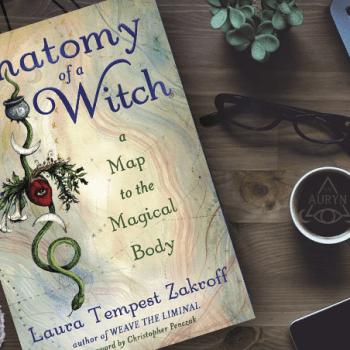As a child growing up in the 90s, one of my first encounters with anything remotely “realistic” in terms of witchcraft as a child was the movie The Craft. In the movie, there’s a scene where the girls are forming their coven and initiating eachother. One girl holds the athame against the other girl’s chest an asks, “It is better that you should rush upon this blade than enter the circle with fear in you heart. How do you enter?” The girl being initiated responds by saying, “With perfect love and perfect trust.”
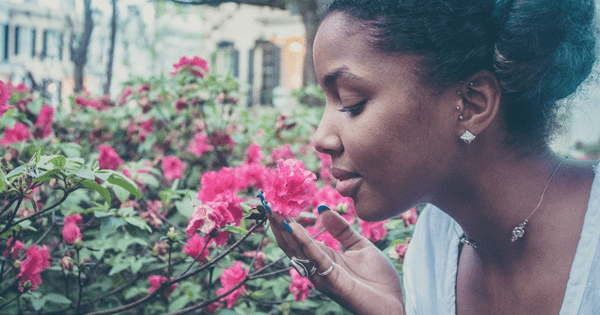
In the Temple of Witchcraft we are taught to end our circle-casting on the third pass by saying, “We charge this circle to create a space beyond space, a time beyond time, a temple of perfect love and perfect trust where the Highest Will reigns sovereign.” Tracing the phrase back, we see it’s usage in the poem “Rede of the Wiccae” attributed to Lady Gwen Thompson in 1975 which states, “Bide the Wiccan Laws ye must, in perfect love and perfect trust.” Tracing it even further back, we find the phrase in the Gardenarian Book of Shadows for the First Degree Initiation, which the scene from The Craft echoes.
“Magus leaves circle by the doorway, goes to Postulant, and says, “Since there is no other brother here, I must be thy sponsor, as well as priest. I am about to give you a warning. If you are still of the same mind, answer it with these words: ‘Perfect Love and Perfect Trust.'” Placing the point of the sword to the Postulant’s breast, he says, “O thou who standeth on the threshold between the pleasant world of men and the domains of the Dread Lords of the Outer Spaces, hast thou the courage to make the Assay? For I tell thee verily, it were better to rush on my weapon and perish miserably than to make the attempt with fear in thy heart.” Postulant: “I have two Passwords: Perfect Love and Perfect Trust.” Magus drops the sword point, saying, “All who approach with perfect love and perfect trust are doubly welcome.” ”
– Gerald Gardner
Book of Shadows
As we see, Perfect Love and Perfect trust are passwords to the temple. While it could be argued that there are more, I believe that the witch is constantly working within three main temples. The first temple is the Inner Temple, the sacred space within oneself. The second temple is the Outer Temple, which is the sacred space we create when doing magick and casting a circle. The third temple is the Living Temple, which is the planet – it is the external world we live in. This ties in with with the Hermetic axiom from The Kybalion, “As Above, So Below. As Within, So Without”.
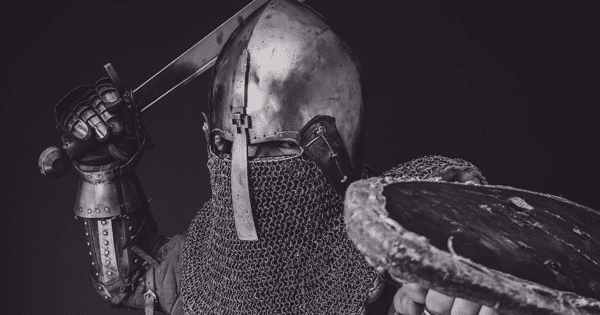
Warding
Right now it’s popular for certain groups to scoff and condemn the idea of “safe space”, however the idea of a “safe space” is sacred in Witchcraft. Whenever sacred space is created, whether it’s by casting a circle, calling the crossroads or hallowing the compass, the space is always warded. This means that energies, entities and people that are unsafe are removed from the space and guarded against. We need these safe spaces in our lives. It is vital that we remove those that are wanting to harm us emotionally, physically or mentally from our space.
The casting of a circle is literally that of creating a boundary. The witch must have boundaries within all their sacred spaces. It intentionally cuts off opposition momentarily for the purpose of not having our work interfered with. We must have a space to work filled with energies and people who we mutually love, trust and feel safe with. To enter a “space beyond space, a time beyond time” we must be fully charged, meaning we cannot have those draining and derailing us within our space while we are working. Those who come in Perfect Love and Perfect Trust, those who promote a safe space are welcomed. Those who cannot, we hold with love but do not allow within our boundaries.
“In some ways this tenant can be likened to the love of a parent for a child. Negative or destructive behavior by a child can cause the parent anger, despair, or even great disfavor. The parent still loves the child, however, and trusts that through the love and nurturing of the parent, the child will learn the lessons of life and grow to be a good person. The parent’s love remains, as does the support, despite the child’s misdeeds. The parent’s love is equally displayed for the good deeds performed by the child, for love is a constant and is unconditional. Perhaps there is no better definition of perfect love and trust.
The phrase “perfect trust” is understood by some people to indicate a heartfelt belief that kindred companions will never do anything harmful to another. In some traditions the phrase is spoken before one can enter the ritual circle. The individual states to the circle guardian: “I come in perfect love and perfect trust.” The response then returns: “All who speak such words are welcome here, enter…”
– Raven Grimassi
Encyclopedia of Wicca & Witchcraft
Perfect Love & Perfect Trust
Christopher Penczak writes in The Witch’s Heart: The Magick of Perfect Love and Perfect Trust, “Modern Witches call this love Perfect Love, the love the Divine has for us, for we are divine. What we might call “imperfect” love, or personal and attached love, is also divine yet fully human, and it is in the experience of any love in the human world that we get a glimpse of the perfect divine love.” Divine love is a recognition of the divinity within all people, regardless of who they are. This may sound similar to the eastern concept of “namaste” which roughly means to “the divine light within me acknowledges to the divine light within you”. Witches parallel this with the phrase “Thou art God/dess” to one another. It is a recognition of our unifying divinity on a deeper level than the physical.
Perfection is impossible in the modern day usage of “without blemish”. Perfection used here seems to be more about a high ideal to be strived for. Kind of like a perfected formula that is desired. The lofty goal of Perfect Love and Perfect Trust is like the beacon leading the way through the darkness of the challenges that life throws at us. Perfect Love guides us back to our Higher Will. Perfect Love is what Aleister Crowley means when he writes in The Book of The Law that “Do as thou Will shall be the whole of the Law. Love is the Law, Love under Will.”
“Elsewhere it is written— surely for our great comfort—’Love is the law, love under will.’ This is to be taken as meaning that while Will is the Law, the nature of that Will is Love. But this Love is as it were a by-product of that Will; it does not contradict or supersede that Will; and if apparent contradiction should arise in any crisis, it is the Will that will guide us aright. Lo, while in The Book of the Law is much of Love, there is no word of Sentimentality. Hate itself is almost like Love! “As brothers fight ye!” All the manly races of the world understand this. The Love of Liber Legis is always bold, virile, even orgiastic. There is delicacy, but it is the delicacy of strength. Mighty and terrible and glorious as it is, however, it is but the pennon upon the sacred lance of Will, the damascened inscription upon the swords of the Knight-monks of Thelema.”
– Aleister Crowley
Liber II: The Message of the Master Therion“IT IS WRITTEN that ‘Love is the law, love under will.’ Herein is an Arcanum concealed, for in the Greek Language [Agape], Love, is of the same numerical value as [Thelema], Will. By this we understand that the Universal Will is of the nature of Love. Now Love is the enkindling in ecstacy of Two that will to become One. It is thus an Universal formula of High Magick. For see now how all things, being in sorrow caused by dividuality, must of necessity will Oneness as their medicine… Understand now that in yourselves is a certain discontent. Analyse well its nature: at the end is in every case one conclusion. The ill springs from the belief in two things, the Self and the Not-Self, and the conflict between them. This also is a restriction of the Will. He who is sick is in conflict with his own body: he who is poor is at odds with society: and so for the rest. Ultimately, therefore, the problem is how to destroy this perception of duality, to attain to the apprehension of unity.
– Aleister Crowley
De Lege Libellum

Courage
Courage is another key that sticks out for me in this whole formula. In the Gardenarian ritual, one is asked if they have courage because death is better than entering with fear. Striving for Perfect Love and Perfect Trust take courage. Perfect Love and Perfect Trust is not passive, it is extremely active. One does not sit by while someone assaults one we love. We are not idle when others are being desecrated and striped of their inalienable rights.
Likewise, love does not contribute to creating unsafe spaces. It takes courage to radically recognize the divinity within ourselves and others. Believing that everyone is divine means believing that everyone is equal within that divinity. When that equality is threatened, it takes tremendous strength and courage to stand within one’s sovereignty and confront that threat head on. Do not be afraid to ask of others what you need. Do not be afraid to cut out the toxic people and situations from your immediate space that make you feel unsafe.
Speak up or fight against what you need to as long as it’s coming from a place of Perfect Love. As Raven Grimassi said in the passage above, you can love a child without condoning their misdeeds. You can love the actor while simultaneously refusing to tolerate their actions. It is important to make sure that we are responding from a place of Perfect Love, even if that response is justified anger. Sacred Space, the atmosphere of Perfect Love and Perfect Trust must be protected and that often means we have to confront very real threats.
However, we must not fall into the mentality of a witch hunt. I have seen too often that people will bully others in the name of taking a stand against someone that they deem unsafe. Some people do have a victim mentality, while others are genuine victims. You have every right to remove yourself from a group if the person making you feel unsafe is not removed. This is part of personal accountability and personal sovereignty. You may be completely correct and justified to leave to find or create a safe space.
Attacking someone who isn’t in your space, who isn’t in your group, especially when it involves issues that you aren’t involved with is abusive on its own, in my opinion – particularly if that person was in a conflict that was resolved, amends have been made and the situation had nothing to do with you. As adults we try to mediate the situation when an issue arises before going into full-blow witch-war mode. As I stated on the Wild Hunt recently:
“In my personal community at The Temple of Witchcraft, we have a whole ministry devoted to conflicts among people through mediation. Mediation is to resolve a conflict that the parties can’t solve on their own, with the result being an agreement between the parties to move forward in a specific way, which can vary depending on the circumstance. I have had mediation in the past and found it tremendously healing. The main aspect of this is having a safe space for the two people involved and someone who’s completely impartial to mediate the conflict. In this space, each person is given time to talk uninterrupted and then to have a conversation about what was said. Just having the chance to clearly communicate with an emphasis on listening is something that should not be overlooked and often you’ll find that conflict arises out of miscommunication and misunderstandings.
In the context of larger community I have tried to take these tools with me. This mostly occurs online, as I see more conflict on the internet than in person – shocking, I know. But a large factor in that once again is the inability to communicate face to face, read nuances, understand personalities of strangers and listen. The internet tends to be one giant network of people trying to scream over each other and being focused on what they’re going to say next, not actually listening, sitting with what was said and responding based on that.”
Creating Safe Space
To create safe space, one must know what their own personal boundaries are and what the boundaries of others are. The best way to create a safe space is to act from a place of compassion. Offer your support to others during difficult times and respect their requests. A teacher of mine constantly tells us that “‘No.’ is a complete sentence”. You do not need to explain yourself, nor do others need to explain themselves. This is a strong form of establishing boundaries. Bearing witness and respecting boundaries is about establishing an environment of consent. It’s crucial to be listening and honoring the needs that you and others have to create a safe space. Witness the needs of others and ask them what they need to feel safe. As the Rede of the Wiccae states, “Soft of Eye, Light of Touch. Speak ye little, and listen much.”








